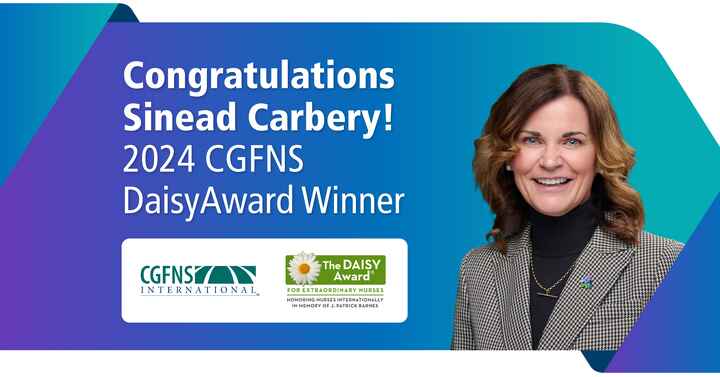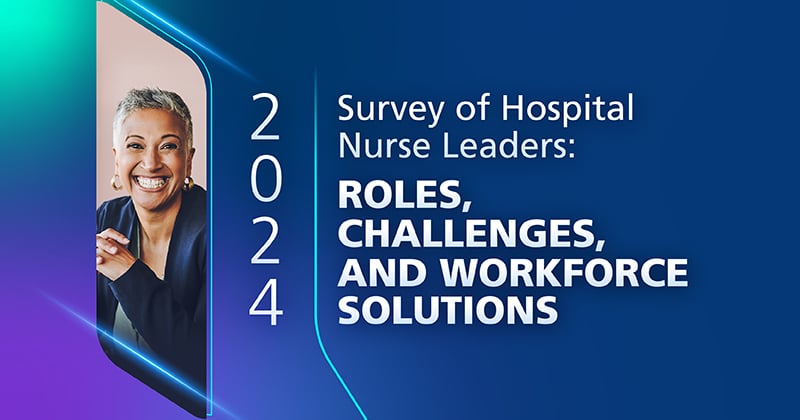
Nurse Stress Management
Nurse stress management shouldn’t be overlooked. Nursing is a rewarding career, but it can also be very challenging. From having many duties to accomplish in a short amount of time to taxing situations that impact your psyche, nurses experience significant stress. That stress can impact you physically and emotionally and spill over into your work and personal life.
We spoke with several wellness professionals about nurse stress management and relaxation techniques that are useful. Use the five relaxation techniques below to help you manage your stress while on and off the job.
Top 5 Relaxation Techniques To Reduce Stress
1. Deep Breathing Exercises
Deep breathing exercises are one of the easiest relaxation techniques you can perform because they can be done anywhere and without any special supplies.
In fact, deep breathing is a scientifically sound way to shed your stress load.
Michelle Dowker, MSc, ND, a wellness strategist, explains that “when you take a deep breath that expands the abdomen, it causes the diaphragm to move and stimulates the vagus nerve. This stimulation will activate the parasympathetic nervous system (PNS), otherwise known as the “rest or digest” response.”
“When the PNS is activated, physiological responses shift from sympathetic nervous activity (the “fight or flight” response), minimizing stress hormone responses, such as cortisol or epinephrine.”
Incorporate deep breathing as something you do regularly and as a rescue technique when stress suddenly appears.
Dowker shares her two favorite ways to complete this exercise: 4-7-8 breathing and alternate nostril breathing.
For the first exercise, breathe in for four seconds, hold your breath for seven seconds, and exhale for eight seconds.
For the second, assume a sitting yoga pose and use your hands to close first one nostril then the other in alternating sequence, inhaling before switching.

2. Find Water
Wallace J. Nichols, Ph.D. is a big proponent of using bodies of water as a relaxation technique.
The author of the New York Times best-selling book “Blue Mind,” Nichols recommends healthcare professionals “include water time in their weekly self-care regime.”
Some of his water-based exposure ideas include:
- Lunch spent by a fountain, pond, lake, or river
- A mindful bath, shower, or soak at day’s end
- Swimming laps
- Sailing
- Using float spas
Nichols explains that “water relaxes and meditates us, allowing us to hit the reset button.”
Recognizing that some stress comes from reliance on cell phones and other devices used during the workday in medical practice, Nichols adds that spending peaceful time on the water “generally is incompatible with the addictive technologies that fill our days on dry land.”
3. Progressive Muscle Relaxation
“Nurses are great at helping others, but often not great at identifying when they need to relax,” says Amy Moreira, LMHC, the owner of More MH Counseling, LLC.
The daily demands of nursing can wipe out your own ability to know when you need to give yourself a break before your stress load becomes unbearable.
Moreira recommends using a progressive muscle relaxation technique, which can help you tune into your body and identify when you’ve become too tense.
She explains that to do this relaxation exercise, “you systematically tense each particular muscle group in your body, assign a trigger word such as relax and release the tension to notice how your muscles feel when you relax them.”
“By focusing your attention and letting go, you're able to quiet your mind and calm your body.”
Progressive muscle relaxation is as easy as deep breathing exercises, and Moreira explains that it's “discreet enough to be done at your desk, during a meeting or at any other time that you are seated.”
Find a chair, take a 10-minute break and prepare to destress.
4. Take Time to Laugh
Even if it’s forced, Laughing can go a long way to diffusing the tension nurses experience. Looking specifically for reasons to laugh and smile, even when you’re under a lot of stress, can too.
Moreira explains that scientifically, “laughing improves blood circulation and relieves muscle tension.”
That’s the tension that can lead you to have knots and pain throughout your neck and back or pain radiating down your extremities.
Moreira recommends that “if you’re feeling stressed out, tense or overwhelmed, focus on something humorous or engage someone in discussion that will give you a good laugh.”
A few activities you could consider slipping into your work day when you have time for a short break could include:
- Looking at funny memes on Facebook
- Watching funny videos on YouTube
- Seeking out websites from your favorite comedians to watch their newest clips
- Rewatching the best scenes from comedy movies you love
5. Visualize Away Your Stress
Visualization is a powerful technique to achieve your goals, which is why it’s the mainstay of many different psychological and mindfulness practices.
Counselor Moreira says that when you’re having a hard day, go on your lunch break and “use visualization to guide you to a calming place.”
This visualization doesn’t have to be of your favorite place, just “a place you find relaxing and can let go.”
To further your stress reduction, “close your eyes and guide your mind to that place, paying close attention to the sounds, textures and smells. Use all your senses and take time to escape your workplace so you can return with a fresh, vacation-like mind.”
This is a subtle way to battle stress during your nursing shift like deep breathing and muscle relaxation.
With these five visualization skills, you’ll be able to recognize when you’re under great stress and take the necessary steps to combat it, leaving you happier as a person and more effective as a nurse.
Additional Nursing Resources:
- AMN Passport: Our all-in-one nursing app for booking nursing jobs.
- Nursing Salary & Benefits: AMN Healthcare offers our nurses some amazing salaries and benefits. Find out what's in store for your nursing career today.
- Travel Nurse Licensing: Find out about nursing requirements for all 50 states.
- Exclusive Facilities: AMN Healthcare has relationships with the most sought-after healthcare providers.
- Refer-a-Friend: Make up to $2,000 per referral.
Latest News
International Recruitment Webinar
Healthcare employers across the U.S. are navigating unprecedented staffing challenges. This exclusive webinar will provide actionable insights into how international clinicians can enhance your
Discover the Vital Role of International Nurses in the U.S.
This white paper is a comprehensive resource to understand the indispensable contribution of international nurses to the U.S. healthcare system.
2024 Nurse Pulse Survey
Explore the full findings of the 2024 Nurse Pulse Survey and gain exclusive access to detailed insights that can guide your strategies and initiatives.
The Ultimate Guide to Strike Contingency Planning
Our “Ultimate Guide to Strike Contingency Planning” equips healthcare leaders with insights, strategies, and tools to ensure continuity of care during labor strikes.
Celebrating Excellence in International Nurse Recruitment:
Sinead Carbery, one of two individuals winning the prestigious 2024 CGFNS DAISY Award.
2024 Survey of Hospital Nurse Leaders
This new survey of hospital Chief Nursing Officers, Chief Nursing Executives and other nurse leaders examines the roles, challenges, and workforce solutions.
Keys to Selecting the Right Partner to Solve Unexpected Staffing Demands
Staffing challenges in healthcare are often unavoidable, but having a plan in place and resources ready can make all the difference for organizations, caregivers, and communities.
2023 AMN Healthcare Survey of Registered Nurses
The AMN Healthcare 2023 Survey of Registered Nurses examines the serious challenges now facing nurses related to career satisfaction and mental health and wellbeing as a result of the pandemic.











